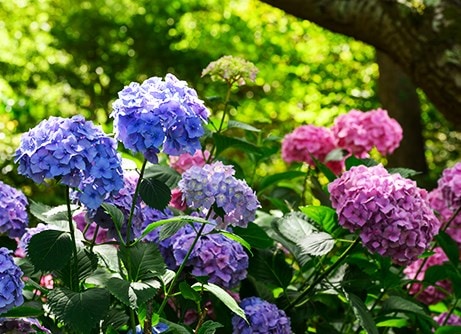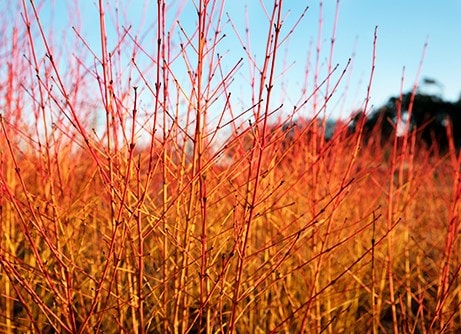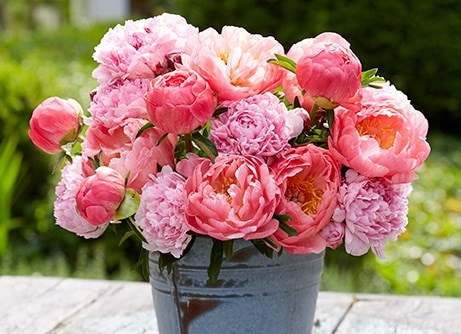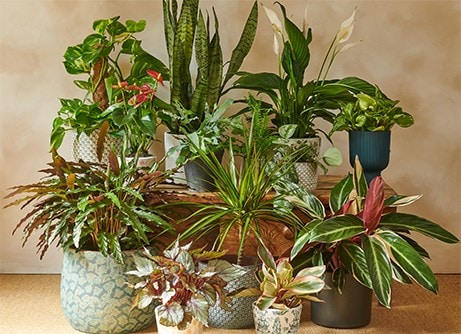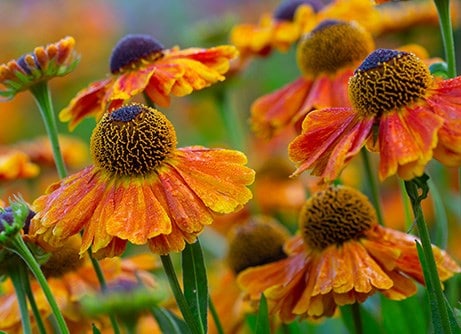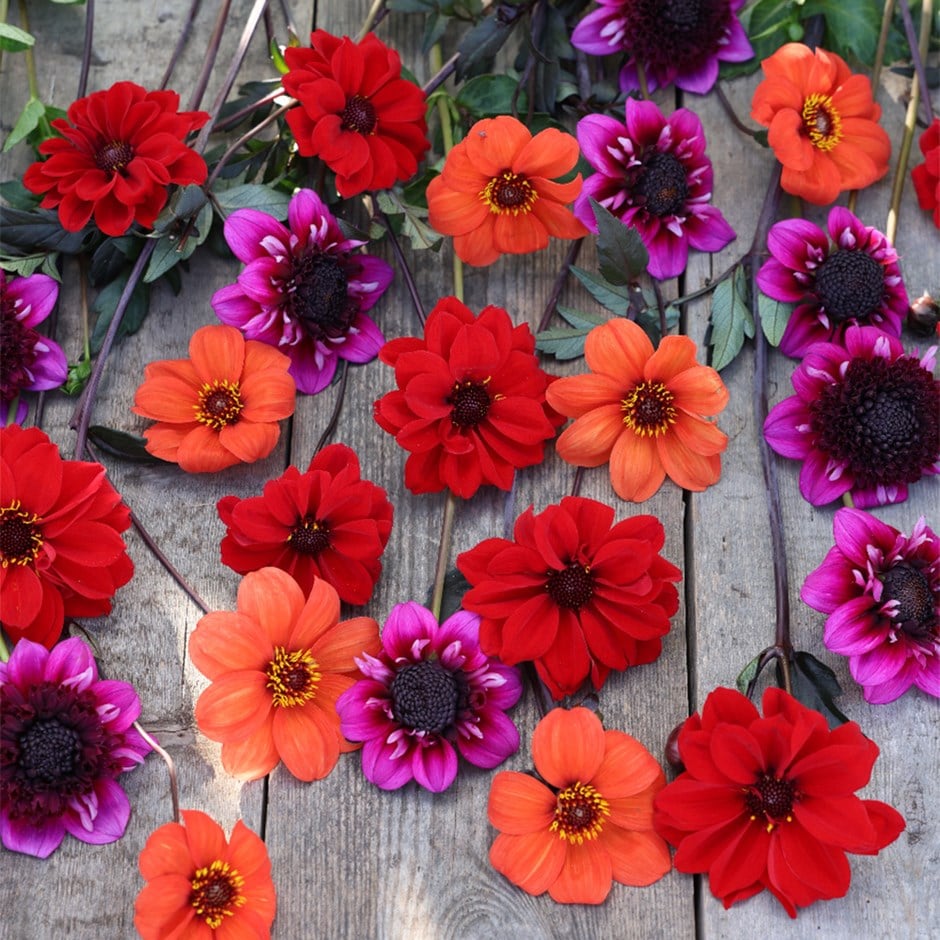
This bold dahlia collection delivers a fiery mix of vermilion, soft orange and vivid pinkish-purple blooms, each set off by dramatic dark foliage. From semi-double to anemone forms, the flowers add striking colour and sculptural interest to borders, pots, or cut flower arrangements from midsummer to early autumn.
Perfect for creating hot, vibrant schemes or contrasting accents in contemporary garden settings.
Perfect for creating hot, vibrant schemes or contrasting accents in contemporary garden settings.
How to care for John's pollinator dahlia collection:
Dahlia tubers can be planted outside after frost, or started off in pots under glass in late winter to early spring. Plant them horizontally approximately 12cm deep, making sure the ‘eyes’ are uppermost. Allow enough room between each tuber so the plants can grow and spread to their full size without being overcrowded.
While in growth, provide a high-nitrogen liquid feed each week in June, then a high-potash fertiliser each week from July to September. Stake with canes or brushwood if it becomes necessary. In mild areas, leave them in situ over winter, but protect the crown with a generous layer of dry mulch.
In colder areas, carefully lift and clean the tubers once the first frosts have blackened the foliage and allow them to dry naturally indoors. Then place the dry tubers in a shallow tray, just covered with slightly moist potting compost, sand or vermiculite and store in a frost-free place until planting out again.
While in growth, provide a high-nitrogen liquid feed each week in June, then a high-potash fertiliser each week from July to September. Stake with canes or brushwood if it becomes necessary. In mild areas, leave them in situ over winter, but protect the crown with a generous layer of dry mulch.
In colder areas, carefully lift and clean the tubers once the first frosts have blackened the foliage and allow them to dry naturally indoors. Then place the dry tubers in a shallow tray, just covered with slightly moist potting compost, sand or vermiculite and store in a frost-free place until planting out again.
What's included:
In each collection you will receive one tuber of each of the following:
Dahlia 'Bishop of Llandaff': Striking, semi-double, bright vermilion-red flowers appear from July to September above the deeply divided, dark bronze-red leaves. This popular, peony-flowered dahlia requires a sunny site with fertile, humus-rich soil. Perfect for a planting scheme based on 'hot' colours. Grows to 1.1m.
Dahlia 'Bishop of Oxford': The soft orange flowers are held above the purple-flushed foliage on dark-coloured stems, creating a lush blend of colour that really stands out in the border. Mix it with rich orange and red, or shades of yellow for a harmonious combination. Alternatively, try it as an accent with plum and purple. Grows to 90cm.
Dahlia 'Missis Amy': A remarkable bright pinkish purple anemone type bloom, with a deep blackcurrant, pincushion centre and swept back outside petals. ‘Missis Amy’ is a prolific flowerer and will add decadent colour as well as contrasting form to your garden border and cut flower displays. Grows to 1.2m.
Flowering period:
- Jan
- Feb
- Mar
- Apr
- May
- Jun
- Jul
- Aug
- Sep
- Oct
- Nov
- Dec
Position:
Full sun
Rate of growth:
Fast-growing
Soil:
Moderately fertile, moist but well-drained soil, or peat-free general purpose compost
Hardiness:
Borderline hardy (will need protection in winter in colder areas)
-
This bulb dies back after flowering each year and enters a period of rest ahead of regrowth the following season.
-
Humans/Pets: Ornamental bulbs - not to be eaten
Product options

1 × collection | 3 tubers
£17.75
£5.92 each
In stock
(delivery within 2-3 working days)
(delivery within 2-3 working days)

2 + 1 FREE collections | 9 tubers
£35.50
£3.94 each
In stock
(delivery within 2-3 working days)
(delivery within 2-3 working days)
1
Delivery options (pick your preferred option at checkout)
Bulbs (only)£4.99
Named Day Delivery£10.99

